The “3R - Reduce, Recycle, and Reuse” project was an innovative educational initiative aimed at integrating environmental education into the curriculum for students aged 12 to 16 years. Its main goal was to foster environmental responsibility among young people by incorporating the concept of sustainable development into various school subjects. This project emphasized the importance of reducing waste, recycling, and reusing resources in daily life, which was crucial for building a more sustainable future.
Objectives of the Project
- Increasing Environmental Awareness:
- We educated students about the importance of sustainability and responsible resource use through practical activities and initiatives.
- We created an ecological culture among young people that helped build a conscious and responsible society.
- Integration of the 3R Concept into the Curriculum:
- We incorporated the concept of "reduce, recycle, and reuse" into various subjects, such as Bulgarian language and literature, mathematics, English language, music theory, history of music, visual arts, biology, physics, and information technology.
- We developed a curriculum that encouraged students to apply these principles in real life.
- Development of STEAM Skills:
- We applied STEAM (Science, Technology, Engineering, Arts, Mathematics) approaches to enhance the educational process through the use of new technologies and innovations.
- We worked with modern tools and methods such as interactive whiteboards, tablets, web-based platforms, artificial intelligence, Arduino, and Micro, which provided students with the contemporary skills needed for the future.
- Familiarization with the European Sustainability Framework - GreenComp:
- We introduced and implemented GreenComp - the European competence framework for sustainability into the school curriculum, which supported the development of green lesson plans and projects.
- We involved students in various sustainability initiatives organized by the European Commission and other organizations.
- Stimulating Creativity and Innovation:
- We encouraged students to develop and implement creative projects with an environmental focus.
- We organized events and competitions where students presented their innovative ideas and solutions, increasing their motivation and confidence.
Project Activities
- Project Security Rules: We created a safe and controlled environment for the implementation of the project, including securing parental consents and implementing eSafety Label.
- Organization of Online Meetings and Project Planning: We developed a detailed plan for the implementation of project activities and ensured active communication among all participants.
- Creation of Avatars, Logos, and Slogans for the Project: We stimulated students' creativity through the development of the project's visual identity.
- Development of an eTwinning School Board: We built a physical and virtual board at the school that reflected project activities and stimulated interest in the topic.
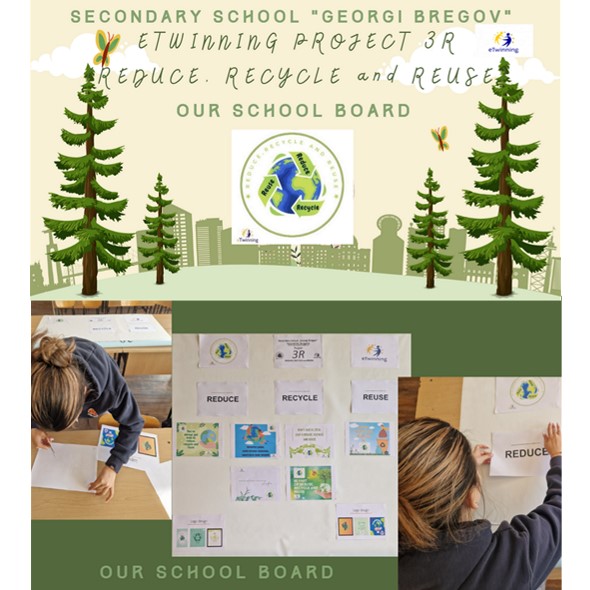
- Creation of Zero Waste Zones at School and Homes: We practically applied the concept of zero waste by creating specialized zones.
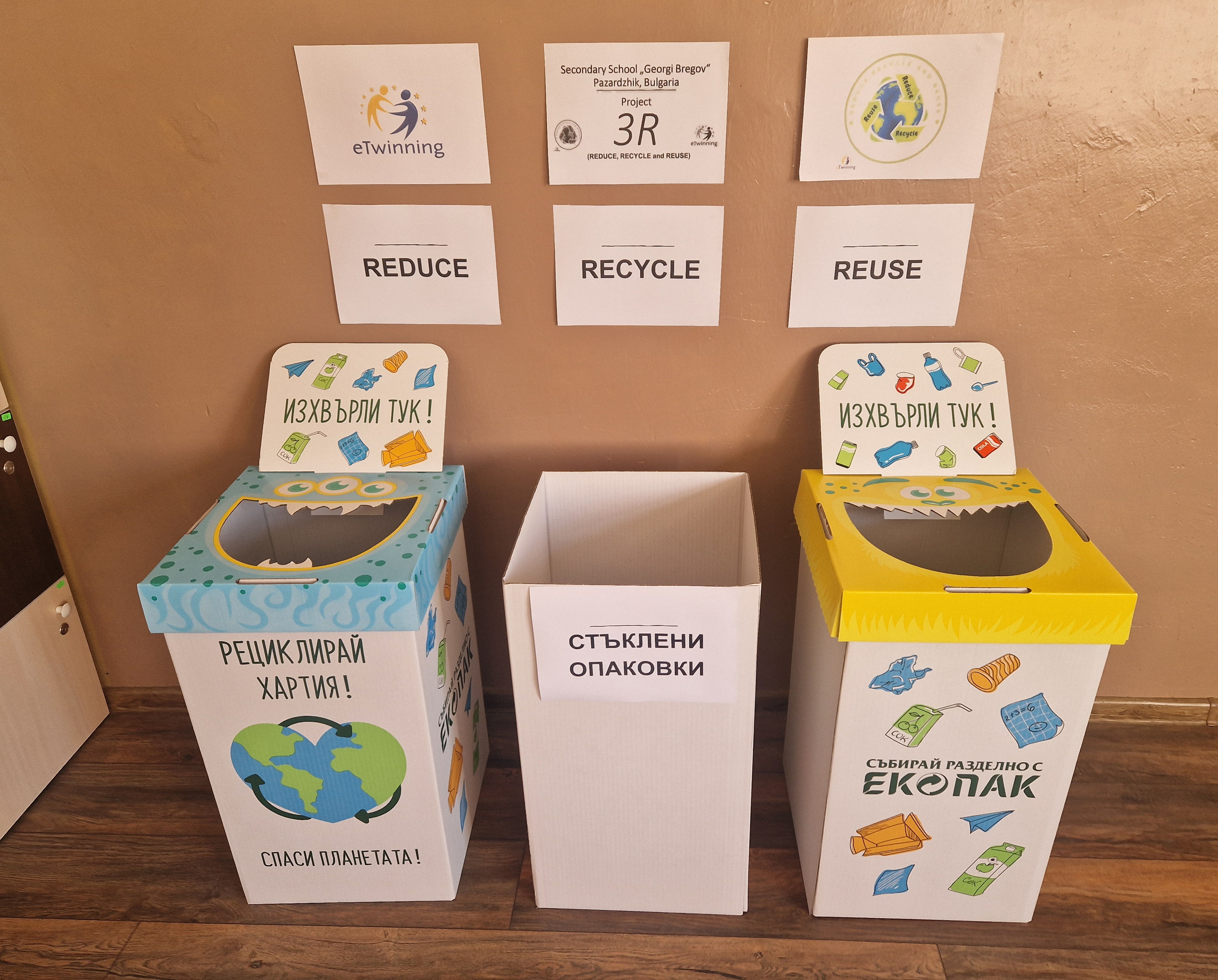
- Presentations and Games: We organized interactive sessions to increase environmental awareness.
- Development of Recycling Rules: We introduced clear and applicable recycling rules at the school.
- Organizing a School Waste Collection Competition: We used a competitive approach to waste collection and proper recycling, which engaged students.
-
Transforming Waste into New Products: Students learned how to use waste as a resource to create new and useful items.
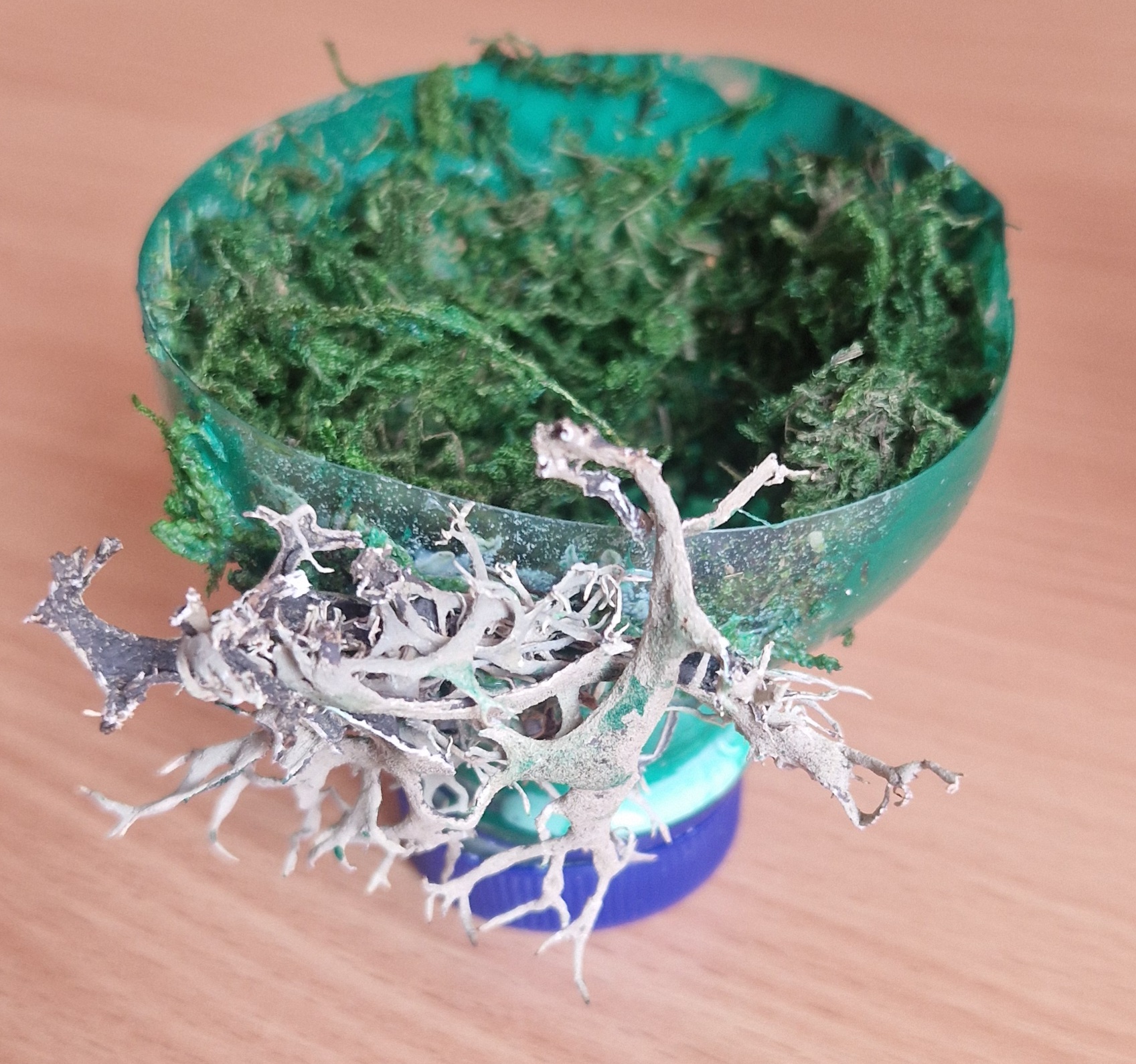
- Virtual Exhibition: We presented students' projects through a virtual platform.
- Climate Education and Certificates: We provided educational sessions on climate issues and awarded certificates of completion.
- Creating a Prototype of a Green outdoor concert hall: We implemented a practical project that aimed to demonstrate sustainable thinking and innovation.
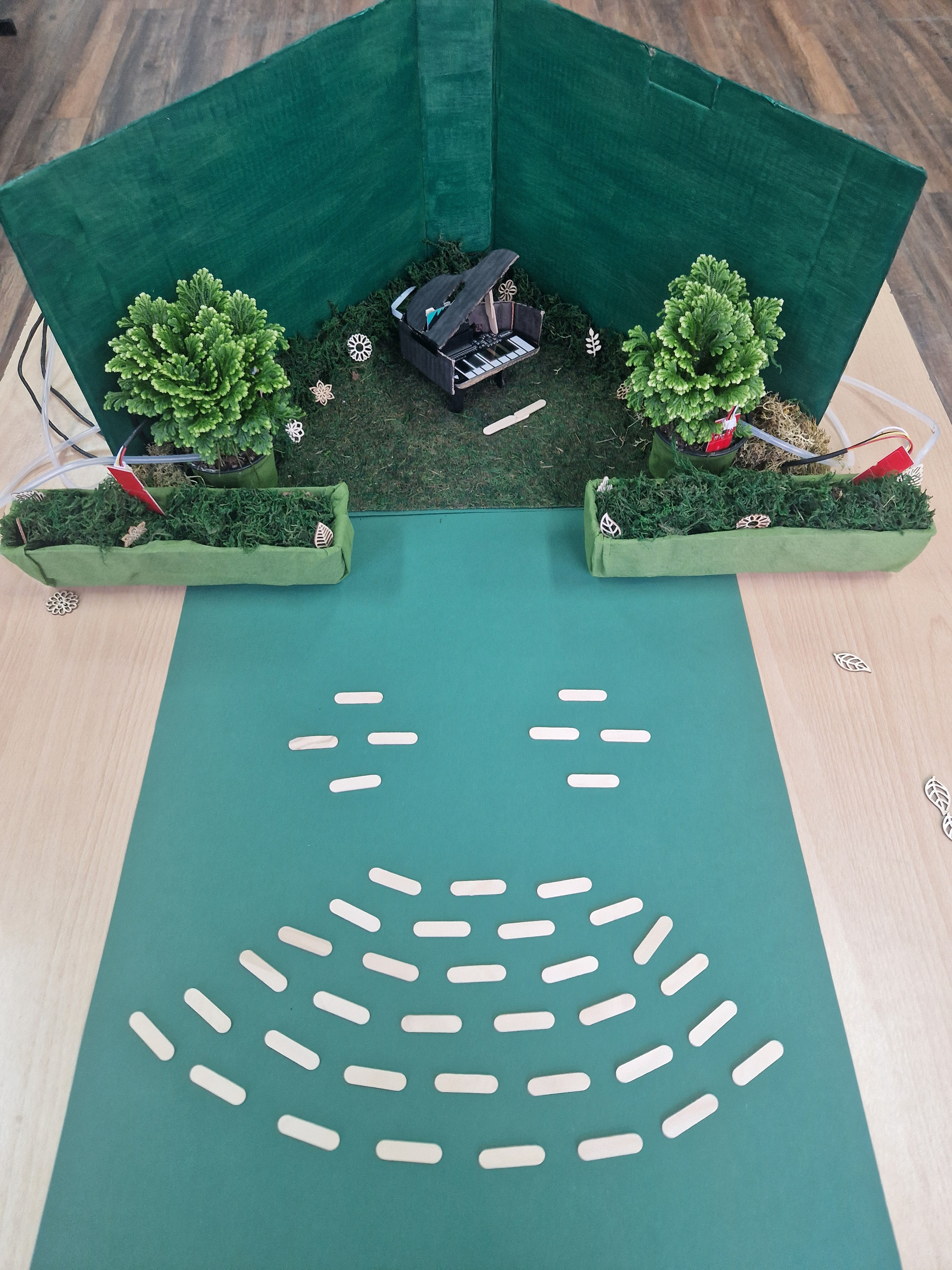
- Creating a Prototype of an Irrigation Robot: We implemented a project using technology to save water resources.
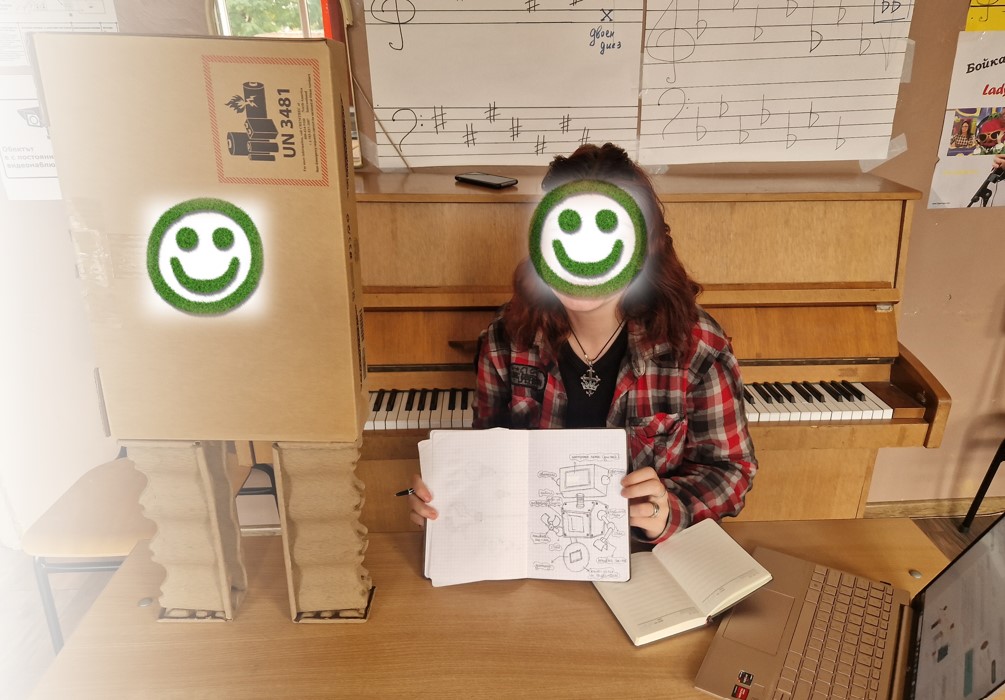
- Development of an Information Brochure for the Project: We created a brochure that informed the public about the project activities and objectives.
In December 2023, the students participated in the "Green Skills in My Green School" competition organized by the Center for Human Resource Development. With their project for a robotic irrigation system, the students won an award for creative contribution, highlighting their creativity and commitment to environmental issues.
We developed interactive educational materials and resources that supported learning through play and experimentation. These resources included digital lessons, multimedia presentations, and online platforms that further increased students' interest in sustainable development and STEAM disciplines.
We actively collaborated with partner schools to share experiences and best practices in sustainable education. The partnerships facilitated the exchange of ideas and methodologies that contributed to the successful implementation of the project.
Project Impact
- Impact on Students:
- Enhancement of Environmental Literacy: Students developed a deeper understanding of the importance of sustainable development and environmental responsibility. They learned how to apply the principles of 3R in their daily lives and make environmentally conscious decisions that contribute to the preservation of the environment.
- Improvement of STEAM Skills: Students engaged in practical projects that required the use of STEAM approaches, such as building prototypes and developing robotic systems. This helped develop their technological and engineering skills.
- Stimulating Creativity: Through participation in project activities and competitions, students had the opportunity to express their creativity and propose innovative solutions to environmental problems. They learned to think creatively and create projects that reflect their environmental awareness.
- Impact on Teachers:
- Improvement of Teaching Methodologies: Teachers developed and applied new educational methods that integrated sustainability into the teaching process. They used innovative approaches that motivated students to engage actively in learning.
- Expansion of Professional Competencies: Teachers participated in training and seminars that improved their competence in sustainable education and STEAM disciplines. They also had the opportunity to exchange experiences with colleagues from other schools and learn new best practices.
- Impact on Society:
- Increasing Public Interest in Sustainability: The project attracted the attention of the local community, which led to increased public awareness of the importance of sustainable development. Local authorities and organizations also showed interest in the initiative and supported various events and activities.
- Enhancement of Environmental Culture: The project contributed to building a stronger environmental culture among participants and their families by encouraging the implementation of sustainable practices in daily life.
The “3R - Reduce, Recycle, and Reuse” project successfully achieved its goals and left a lasting impact on students, teachers, and society as a whole. Through innovative teaching methods and active sustainability initiatives, the project managed to inspire a new generation of young people who are more aware and engaged in protecting our planet. This initiative not only improved the quality of education but also created conditions for a better and more sustainable future.
https://www.youtube.com/watch?v=aVYGbxWtRUw
https://www.youtube.com/watch?v=qXe95fsm0OU

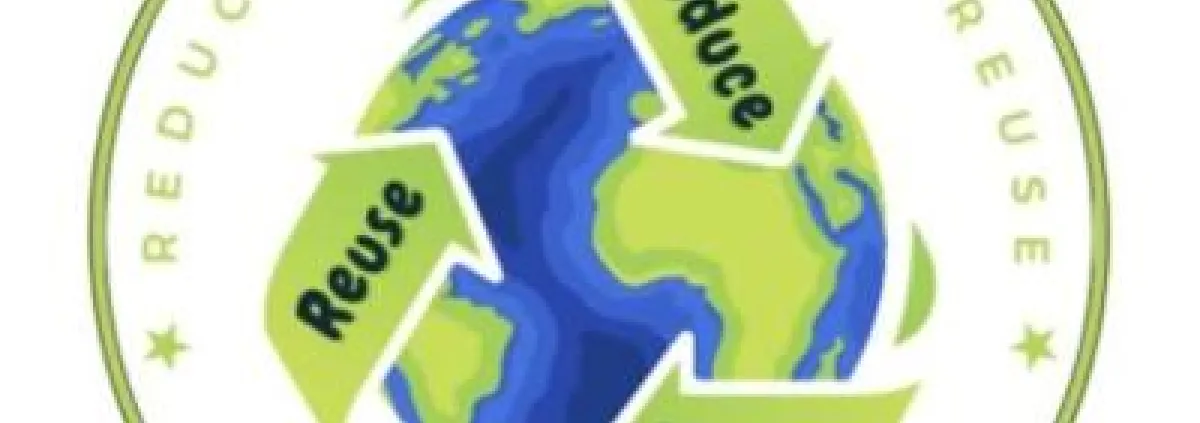
Please log in or sign up to comment.